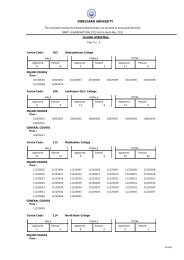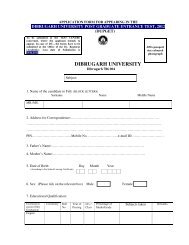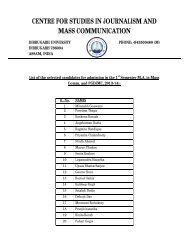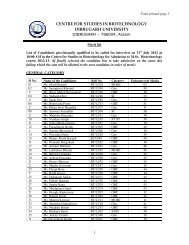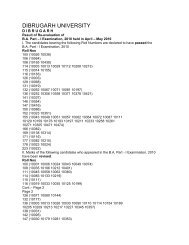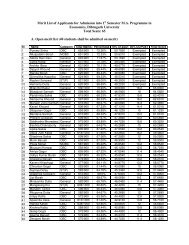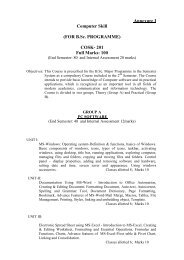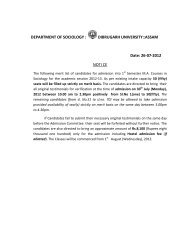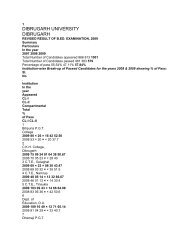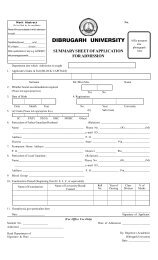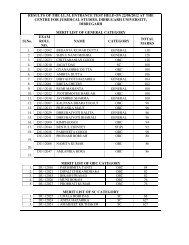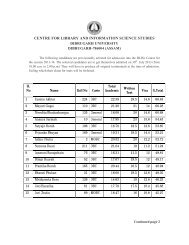M. A. Syllabus under CBCS - Dibrugarh University
M. A. Syllabus under CBCS - Dibrugarh University
M. A. Syllabus under CBCS - Dibrugarh University
Create successful ePaper yourself
Turn your PDF publications into a flip-book with our unique Google optimized e-Paper software.
Details <strong>Syllabus</strong> of the M.A 3 rd Semester Programme in Education <strong>under</strong>Choice Based Credit System: Session 2009-2010Course No.: EDN 30420 (B)Title of the Course: Environmental EducationName of Course Teacher : Dr Sailendra BhuyanCourse objectives:1. To make the students to <strong>under</strong>stand about the concept, importance, scope and aims ofenvironmental education.2. To acquaint the student with possible environmental hazards enabling them to combat withthe negative effects of the progrmmes of environmental erosion and pollution at variousstages of education3. To orient student teachers with various components of environment for preparing acurriculum for environmental education.4. To enable the student teachers to develop various methods and strategies for realizing theobjectives of environmental education.5. To enable the student teachers to <strong>under</strong>stand about various projects in the area ofenvironmental studies in different countries.Unit Topic No. ofLecturesUnit -I Introduction to Environmental Education: 4Concept, importance and scope of environmental education 2Difference between Environmental Education and Environmental ScienceAims and objectives 1Guiding principles and foundations 1Relationship between mass and environment 2Multidisciplinary nature of environmental education 1Unit – II Environmental Pollution : Causes, effects and control measures of 4Air pollution 1Unit –IIIWater pollution 1Soil pollution 1Marine pollution 1Noise pollution 1Thermal pollution 1Nuclear hazards 1Social issues and the Environment 4Solid waste management :Causes, effects and control measures of urban 2and industrial waste.,Water conservation, rainwater harvesting, watershed management 2Resource consumption patterns and the need for equitable utilization 2Preserving resources for the future generations 2The ethical basis of environment education and awareness 2Climate change – global warming, acid, rain, ozone layer depletion and 2nuclear accidents.Unit - IV Nature of environmental education curriculum 4No. ofTutorials



